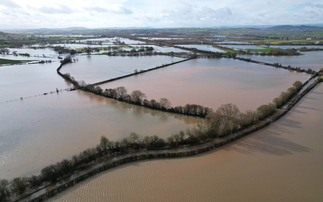IETA reports progress is being made towards an agreement that recognises the role of carbon markets
Hopes are mounting that a new Paris Agreement could provide a boost to global carbon markets, after it emerged support was growing among negotiators for the inclusion of proposals that would help support the expansion of so-called "market-based mechanisms".
The EU and Brazil yesterday put forward a proposal about the role of "co-operative approaches" - or markets - in the negotiating text. It called for the creation of a "mechanism to contribute to the mitigation of greenhouse gas emissions and to support sustainable development [in developing countries]", adding that such a mechanism would be introduced on a voluntary basis in different countries and would see promised emission reductions "certified by operational entities to be designated by the supervisory body".
The move was welcomed by the International Emissions Trading Association (IETA), which expressed hopes that an ambitious agreement would include support for carbon markets.
"We welcome the efforts by ministers to reach an agreement on language underpinning co-operative approaches - or markets - for the Paris Agreement," said Jeff Swartz, IETA's director of international policy, in a statement. "The leadership shown here, particularly by the EU and Brazil which worked together on the proposed text, is a positive step for the wider negotiations.
"In order to reach the 2°C, all options to cut emissions need to be available. Markets and the co-operation they foster can help get us to where we need to go faster and at a lower cost than alternatives, such as carbon taxes. Today's agreement is a recognition of this fact by governments."
Speaking to reporters, Sarah Deblock, European policy director at IETA, said the negotiations were moving in the right direction and had been conducted in an atmosphere that was "very constructive".
"There is a clear effort to push forward with a recognition that [markets] are a useful instrument and establish some fundamental principles, such as accounting, that could provide the basis for future markets and potential linkages of existing markets," she said.
However, concerns remain that the talks could still face a setback in the coming days, given a number of nations remain "ideologically opposed" to any inclusion of market-based mechanisms in the final text.
The negotiations are expected to face a crucial test this afternoon with the publication of a new draft text. Observers said the release of the text was likely to mark the point at which countries with significant criticism of the negotiating process or proposed agreement will come forward.
Officials confirmed this morning that plans to publish the new text at 1pm local time had been delayed and it would now be released at 3pm with countries providing feedback by 7:30pm.
DeBlock said IETA remained hopeful that those countries opposed to carbon markets may yet accept an agreement which makes clear that market-based mechanisms will be introduced by nations only on a voluntary basis.
Meanwhile, carbon trading in North America received a major boost earlier this week after the premiers of Canadian states Ontario, Quebec and Manitoba agreed to allow carbon trading across their borders as part of the Western Climate Initiative.
The memorandum of understanding, signed by the three state leaders in Paris on Monday, also allows the Canadian provinces to link their cap-and-trade systems with California's market, once the Ontario and Manitoba systems have been established. The provinces also agreed to standardise how they track and measure greenhouse gas emissions.
Quebec already has a working cap-and-trade system that is linked with California's, while Ontario plans to introduce its scheme in 2017. Manitoba's premier Greg Selinger announced last week his state would introduce a similar carbon trading scheme for 20 large emitters as part of the region's climate change plan.
Selinger said he was confident the agreement would accelerate efforts to tackle climate change across Canada. "We are eager to create this new market and use that tool to allow us to move forward to find the most efficient and effective ways to make a difference on climate change," he told reporters in Paris.
This article is part of BusinessGreen's Road to Paris hub, hosted in association with PwC.








